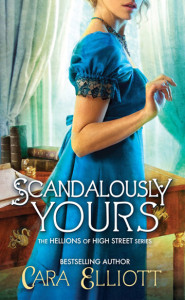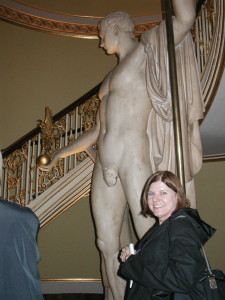I was thinking I would post more about my pugilism research but I when I wasn’t writing, I was prepping documentation for taxes.
Taxes. Boy. Record keeping. ::sob::
Anyway, here’s ten interesting facts about English Taxes during the Regency.
1. 1,308,254 5s 3 1/4d: Land tax gross receipts (England) in 1811
2. 12,358,673 2s 2 1/2d: Property Tax collected in 1811
3. 3,096 7s 11d: Income Tax collected in 1811
4. 11,322 19s 11d: Income tax collected in Scotland in 1811
5. 112,937 10s 0d: Monies Ireland received from Great Britain, representing 1/3 of the profit on the 1810 lottery
6. PROPERTY TAX.
This poor tax is now become as much the object of senseless abuse as were, in 1798, those who endeavoured to prevent it from being imposed. In 1812 an unfortunate man, named Carter, was imprisoned in jaol [sic], for a year, and lined, for having published a paragraph complaining of the operation of this tax. My Lord Folkestone, who made a motion upon this subject, described this paragraph as being moderate and inoffensive. Yet, for republishing the same paragraph, Mr. Lovell of the Statesman was imprisoned a year or 18. months in Newgate, and also fined,—The selfish and, unfeeling crowds, who are now clamouring against this tax; who are abusing it; who are applying to it all sorts of vile epithets and names, because they now feel the pinch of their pockets; these persons never meet to petition against the prosecutions of the press; no, and they never would have met for that purpose, if every press in England had been demolished and the types thrown into the street, as were those of the American printers at the City of Washington, by command of our military and naval commanders. Saturday, January 18, 1815, Cobbett’s Political Register
7. XVI. And Whereas Difficulties may arise in discovering Lodgers or Inmates in Houses liable to pay the said Rates, Duties and Taxes, in respect of Carriages, Male Servants and other Male Persons, Horses, Mares, Geldings and Dogs; Be it therefore enacted, That the Owner of any House letting the same, or Owners of any Part thereof, to any Lodger or Lodgers in which any Lodger or Inmate shall reside, who shall keep, retain, employ or use any Carriage, Male Servant or other Male Person, Horse, Mare, Gelding or Dog, shall &c. kept shall deliver to any such Officer or other Person authorized as aforesaid, on Demand, or within Ten Days after by their Lodgers. Notice served by such Officer or other Person authorized as aforesaid, by leaving or causing to be left the same at the House of such Person as aforesaid, a true List or Account in Writing under the Hand of such Owner expressing the Name and Surname of every such Lodger or Inmate, with an Account of every Carriage, Male Servant or other Male Person, Horse, Mare, Gelding or Dog kept, retained, employed or used by such Lodger or Inmate, to the best of the Knowledge and Information of such Owner j and if any such Owner (hall neglect or refuse to deliver such List or Account as aforesaid, or shall wilfully omit or misrepresent any Description which ought to be contained therein, or shall make or deliver any undue or false List or Account, every such Person so offending shall for every such Offence forfeit the Sum of Twenty Pounds. Penalty. The Statutes of the United Kingdom of Great Britain and Ireland, Volume 24 (1816)
8. In Great Britain, the principal taxes upon the necessaries of life are those upon salt, leather, soap, and candles. Heavy taxes upon these commodities must somewhat increase the expence of the sober and industrious poor, and must, consesquently, more or less raise the wages of their labour. Such taxes, notwithstanding their immediate effect, afford a considerable revenue to government, and accordingly they are continued and multiplied.Consumable commodities, whether necessaries or luxuries, may be taxed in two different ways. The consumer may either pay an annual sum on account of his using or consuming goods of a certain kind ; or the goods may be taxed while they remain in the hands of the dealer, and before they are delivered to the consumer. The consumable goods which last a considerable time before they are consumed altogether, are most properly taxed in the one way. Those of which the consumption is either immediate or more speedy, in the other. The Cyclopædia: Or, Universal Dictionary of Arts, Sciences, and …, Volume 35
9. An Act to repeal the additional Duty on British made Wine or Sweets granted by an Act of this Session of Parliament. [25th May 1815.]
WHEREAS by an Act made in this Session of Parliament, intituled An Act for granting to His Majesty, until the Fifth Day of April One thousand eight hundred and nineteen, additional Duties of Excise in Great Britain, on Sweets, Tobacco, Snuff and Excise Licences, an additional Duty of Excise Is imposed for Liquor made in Great Britain for Sale, by Infusion, Fermentation or otherwise from Fruit or ‘Sugar, or from Fruit or Sugar mixed with any other Ingredients or Materials whatsoever, commonly called « Sweets, or called or distinguished by the Name of Made Wines: And Whereas it is expedient to repeal the ‘said additional Duty;’ Be it therefore enacted by The King’s Most Excellent Majesty, by and with the Advice and Consent of the Lords Spiritual and Temporal, and Commons, in this present Parliament assembled, and by the Authority of the same, That, from and aster the Eighteenth Day of February One thousand eight hundred and fifteen, the said additional Duty shall be and the same is hereby repealed. repealed.
II. And be it further enacted, That the Commissioners of Excise in England and Scotland respectively, or Entries of any Three or more of them respectively, shall and they respectively are hereby authorized and empowered to Duties to cause any Sum or Sums of Money which shall have been charged as any such additional Duty for or in respect charged of any such British-made Wine or Sweets to be discharged from and out of the Books and other Documents containing any Entry or Entries of or relating to any such Charge, or Sum or Sums of Money. The Statutes of the United Kingdom of Great Britain and Ireland, Volume 24 (1816)
10. Examination of Lord Henry Petty’s Plan of Finance.
We have already given an account of Lord Henry Petty’s plan of finance. It was proposed to Parliament and the public, in the year 1807, accompanied with an elaborate set of tables. Being very complex, it was not generally understood. As it promised to raise the necessary loans with little or no increase of taxes, it was favourably received, and probably would have been continued for some years if the ministry who brought it forward had remained in office.
INQUIRY CONCERNING THE RISE AND PROGRESS, THE REDEMPTI0N AND PRESENT STATE, AND THE MANAGEMENT, OF THE NATIONAL DEBT GREAT BRITAIN. (1814)
Number 10 is my favorite.









